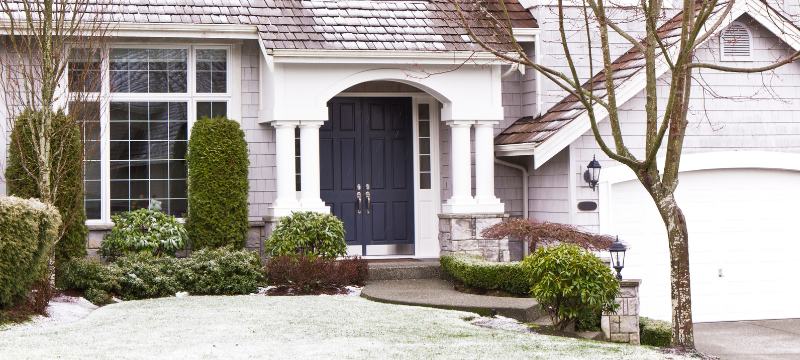While Florida experiences some mild winters, the further up the state you go, the colder it gets. Winter is actually in full swing here in the Emerald Coast. While there is little chance of seeing some snow, that doesn’t stop us from making seasonal adjustments to keep our homes safe and efficient. Here are some tips for effectively “winterizing” your Florida home.
Check On Your Home’s Pipes
Frozen, cracked, and burst pipes are common in colder regions but this problem still exists in our state. Floridians occasionally experience cool or cold fronts from changes in air patterns in the north east. While newer construction may use PVC piping to protect against cold temperatures, older homes may see problems with their pipes when temperatures get lower than usual. This is because the pipes may be made out of different materials or not well-insulated. It is advisable to have your plumbing and pipes professionally inspected. In the event of a freeze warning, wrap metal pipes to prevent bursting or cracking. This is especially during the night as temperatures drop lower. Allowing a small drip from a faucet also allows water to be flowing constantly, making it harder to experience these problems.
Gutters are a big deal
You always want to thoroughly clean the gutters to your home. As they can become clogged with many different types of debris, nothing in the gutters should be touching the roof. This is good advice for all seasons, but is especially important in the coldest months due to the nature of freezing temperatures. If there is water, tree branches, and other stuff freezing to your roof, then it may cause damage. Remember that at 32 degrees, water freezes and when there is a small bit of standing water in the gutter, which can become ice, causing blockages in the gutter. Always look into solutions to cleaning them if there will be a significant winter chill in your area.
Seal any Leaks you find.
Leaks are a big insurance claim. Every year, every season especially during hurricane months, we see these. Making sure to seal any leaks that may exist outside your home on doors, windows, vents, or anywhere else you think will help you greatly improve your home when cold air is coming in. If your home does not have windbreak windows, use a window insulation kit. Many air leaks can create more havoc if not tended to in a timely manner. With cold temps, wind, rain, and wet air, damages from a leak can introduce problems inside the home. Don’t forget to check your attic insulation to make sure it’s at least 12 inches deep as well. When looking for leaks, take note of your ducts, as they should be vacuumed to maintain good air quality throughout the home. Both of these measures are minor inconveniences at the cost of saving on heating costs throughout the season.
Air Quality and Changing Your Filters
The type of air circulating through your home is important for a number of reasons. First of all, being that we spend a lot of time in our homes, we need to make it a healthy living environment. If the air filter has not been changed recently (ideally, it should be changed every three months), it may be a good time to do this during the winter months. Air is significantly less dense making for a more “cleaner” feeling. With a better air flow throughout the house, it can make heat circulation better if you need to raise the temperature inside. An old trick is to reverse the direction of any ceiling fans in the rooms that have them. Moving the warm air clockwise will help condition the room to a less cool temperature.
With all said and done, we hope your winter is both safe and enjoyable. We’re just lucky we don’t have to shovel snow!

LEGAL DISCLAIMER
Views expressed here do not constitute legal advice. The information contained herein is for general guidance of matter only and not for the purpose of providing legal advice. Discussion of insurance policy language is descriptive only. Every policy has different policy language. Coverage afforded under any insurance policy issued is subject to individual policy terms and conditions. Please refer to your policy for the actual language.




